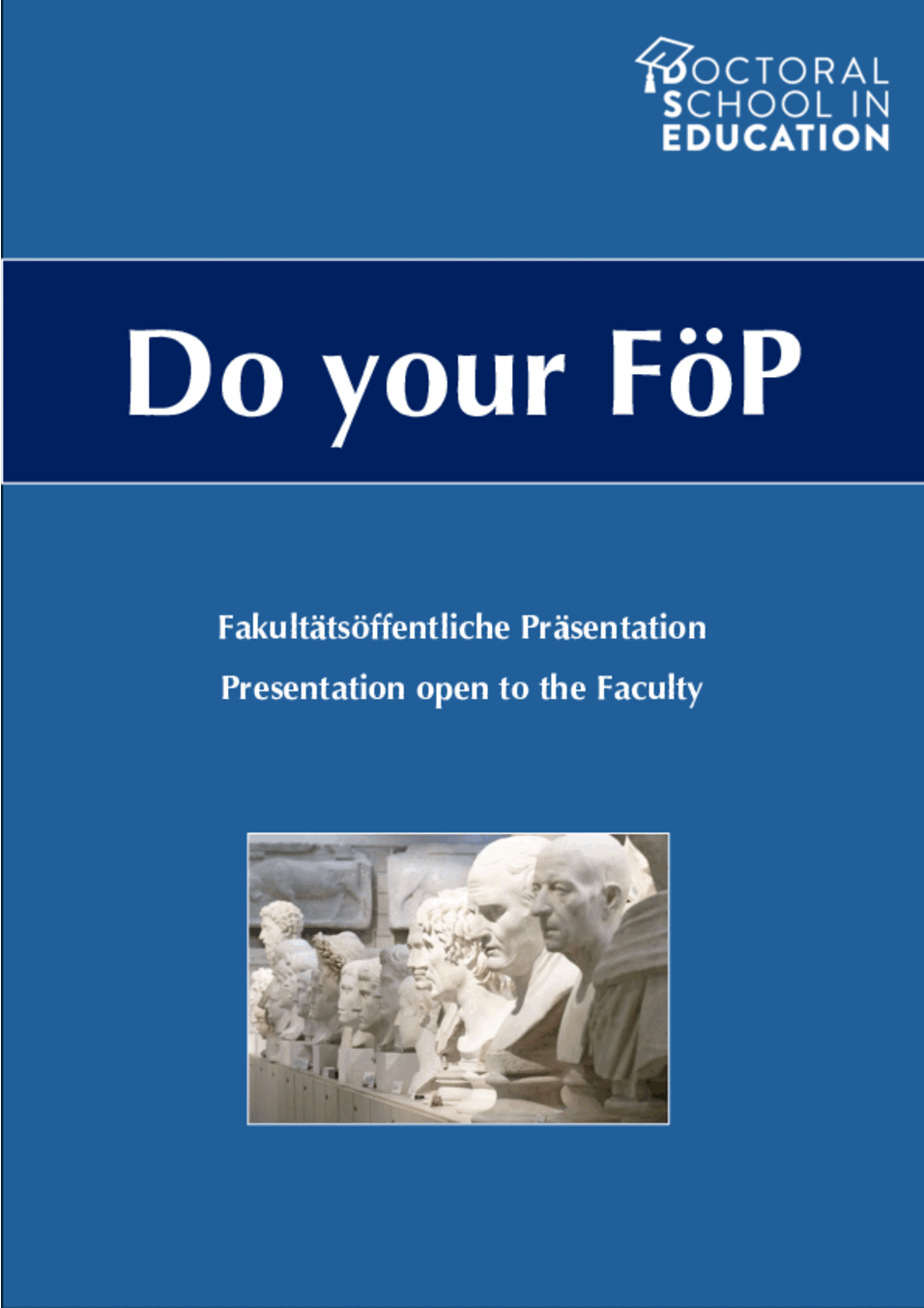Possible dates for the FöP in the coming winter term 2025/26:
October 2
November 11
December 12
January 21
All forms and facts can be found here. The person to contact in this regard is Martina Authried (SSC Biwi).
Possible dates for the FöP in the coming winter term 2025/26:
October 2
November 11
December 12
January 21
All forms and facts can be found here. The person to contact in this regard is Martina Authried (SSC Biwi).
